Turkey’s president, Recep Tayyip Erdoğan, and his key ally, leader of the Nationalist Movement Party (MHP) Devlet Bahçeli, continued to use a divisive ultranationalist rhetoric throughout the year. The ongoing economic turmoil, which was exacerbated by the COVID-19 pandemic, also contributed to the rise of rights violations, hate speech and hate crimes targeting ethnic and religious minorities and refugees in Turkey in 2020. The country’s Kurdish, Armenian and Alevi communities and other minorities faced discrimination and hate speech to varying degrees.
Here is some of the most important news from 2020 in the field of minority and refugee rights:
Hate crimes against Kurds increase in Turkey
Sixteen Kurdish seasonal farm laborers were attacked on September 4 by a farm owner and a group of villagers in Turkey’s northwestern province of Sakarya in an incident that appears to have been caused by anti-Kurdish sentiment. The laborers came from the southeastern city of Mardin during the summer holidays to work in the hazelnut orchards. They were picking hazelnuts when the owner of the farm verbally and physically assaulted them. Images of the attack were widely circulated on social media. More..
In another hate crime father and son Kadir Sakçı (43) and Burhan Sakçı (16) were attacked by a mob, again in Sakarya, for speaking to each other in Kurdish. Kadir Sakçı died as a result of his injuries and Burhan was hospitalized for an extended period of time.
Armenian graves desecrated amid climate of hostility towards minority groups in Turkey
Some of the graves in the Armenian cemetery of either the Surp Pırgiç or Karasun Manug church foundation in the Sincan district of Ankara were desecrated amid a growing climate of hostility and repression towards minority groups in Turkey. More..
Hate crimes against Syrian refugees on the rise
Syrian refugee Abdulkadir Davud, 21, was shot dead on August 18 in what appears to have been a hate crime in the Zeytinburnu district of İstanbul.
On September 13, 16-year-old Syrian Eymen Hammami was stabbed to death in another alleged hate crime in the Black Sea city of Samsun.
Also in September, Vail El Mansur, a 14-year-old Syrian boy, was killed in an alleged hate crime in on his way to work in central Turkey’s Konya province.
Three refugee women and a child were severely beaten in the middle of the street in the southeastern city of Antep in September by a Turkish man and woman. More..
Alevi communities increasingly face hate crimes in Turkey

Alevi leaders say the current situation of Turkey’s Alevi population is becoming increasingly precarious as the government of President Recep Tayyip Erdoğan has failed to fulfill its promise of granting them more rights to enable free practice of their beliefs and has increasingly imposed its own version of Islam on various segments of society. More…
70 percent of Kurdish youths face discrimination, research shows
Seventy percent of Kurdish youths in Turkey encounter discrimination in their daily lives, according to joint research conducted by the Rawest Research Center, the Yaşama Dair Vakıf (YADA Foundation) and the Kurdish Studies Center. More…
Turkey removes signs in Kurdish as racist attacks on Kurds surge
The trustee appointed by Ankara to replace the pro-Kurdish mayor of the eastern city of Van has substituted local placename signs in Kurdish with signs in Turkish. Prohibitions against the use of Kurdish in Turkey go back many years. Kurdish language, clothing, folklore and names had been banned since 1937. The words “Kurds,” “Kurdistan” and “Kurdish” were among those officially prohibited. After a military coup in 1980, speaking Kurdish was officially forbidden even in private life. More..
Kurdish private dies under suspicious circumstances during military service
Osman Özçalımlı, a gendarmerie private recently assigned to a prison in the western city of İzmir, died under suspicious circumstances in August a day after he called his father and said, “I’m in bad shape. … They insult me, they call me a traitor.” In its report the state-run Anadolu news agency merely said a private had died after “falling from a height.” Pro-Kurdish Peoples’ Democratic Party (HDP) deputy Züleyha Gülüm claimed that the suspicious deaths that take place in the military mostly involve Kurdish and Alevi soldiers. More..
Refugee children isolated in separate school after Turkish parents reject mixed education
The children of Syrian, Iraqi and Afghan refugees were grouped into a single school in the Central Anatolian city of Kırşehir after Turkish parents refused to send their children to the same school as refugees, claiming a “bad influence.” More..

A group of African refugees were tortured at the Turkish-Greek border by a Turkish-speaking gang, according to video footage shared by an İstanbul-based refugee solidarity group on their Twitter account on October 10. More..
Child worker accounts reveal plight of Syrian refugees in Turkey
The personal accounts of children who work 12 hours a day for a fraction of the minimum wage while having to endure social exclusion and frequent insults reveal the plight of Syrian refugees in Turkey. More..
Turkey’s Armenian community still fears for its safety despite ceasefire in Karabakh
One hundred forty-two Armenians left Turkey in October amid rising anti-Armenian sentiment following Azerbaijani-Armenian clashes. The conflict between Armenia and Azerbaijan in the southern Caucasus triggered a new wave of anti-Armenian sentiment in Turkey, exploited and fueled by ultranationalist elements, and has increased the pressure on its Armenian citizens. More..
Turkey’s Armenian community still fears for its safety despite a ceasefire in Nagorno-Karabakh, after ultranationalist elements, with the tacit approval of the Turkish government, used the clashes between Azerbaijan and Armenia to fuel a new wave of anti-Armenian sentiment. More..
According to Yerevan-based Turkish-Armenian journalist Alin Ozinian, many Armenians still believe the latest protests were attempts to frustrate the community and were provocative acts aimed at repressing the Armenians and giving them a hard time.
Refugees in Turkey are pushed into ghettoization in absence of integration policies
The majority of Turkish society is resisting accommodating refugees, and migration policies are ineffective in integration, which is pushing refugees into ghettoization and causing social division, according to Professor Murat Erdoğan of the Turkish-German University Center for Migration and Integration. More..
American spouse of Turkish pastor to be deported for no apparent reason
Joy Anna Crow Subaşıgüller, a US citizen married to a Turkish Protestant pastor, was told to leave Turkey in 10 days back in June. The decision came after the application to renew her residence permit was denied by the Ministry of Interior’s immigration office without the provision of any justification.
Head of the Istanbul Protestant Church Foundation Timur Topuz said Protestant clerics and their families were systematically denied residence permits and the existing permits were revoked. According to Topuz more than 100 Protestants, including their families, have experienced such problems. More..
Turkey’s higher education board bans dissertations in Kurdish
Turkey’s Higher Education Board (YÖK) has prohibited students studying Kurdish language and literature at Turkish universities from writing their dissertations in Kurdish. All dissertations at Kurdish language departments will now have to be written in Turkish. More..



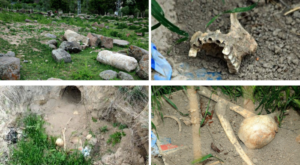
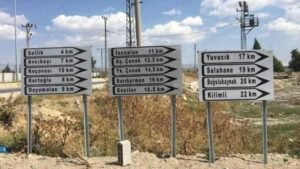
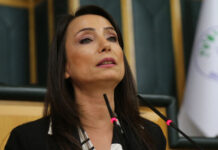

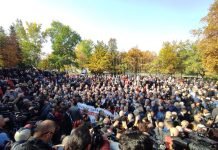
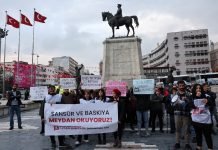










[…] to this article The Year in Review: Minority and Refugee Rights Stockholm Center for Freedom Spread the […]